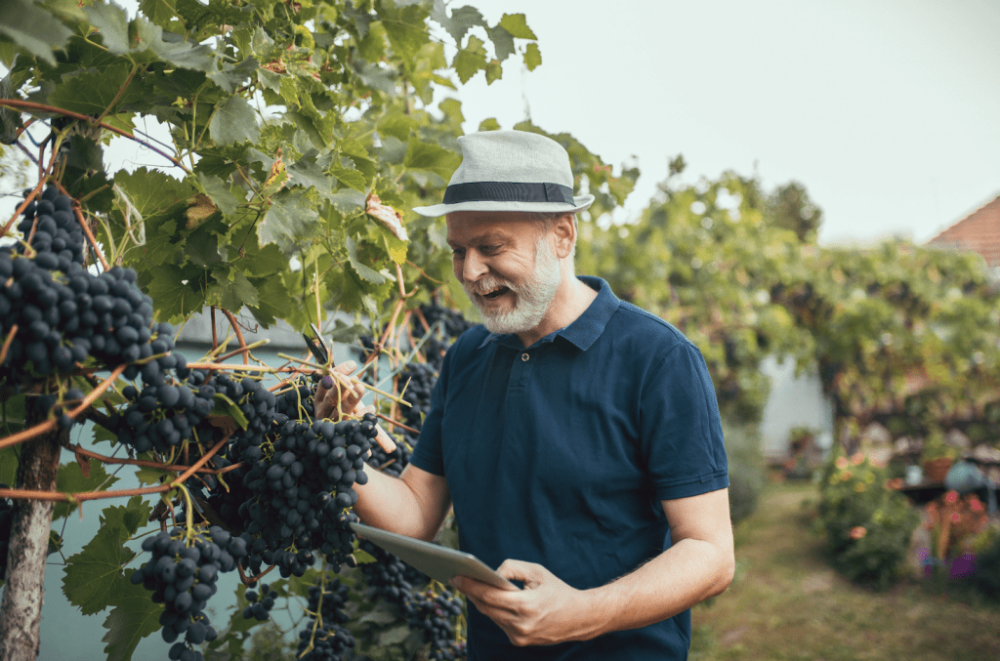Strong growth in the Latin American agrifoodtech sector presents a lucrative opportunity right now when it comes to startups and corporates working together to advance food systems.
While the region still represents just 5% global agrifoodtech VC investment, that number grows each year, with Latin American startups raking in $7.3 billion since 2018, according to a recent report from AgFunder. [Disclosure: AgFunderNews’ parent company is AgFunder.]
This represents a unique chance for corporations, startups, and global and regional funds to collaborate, said participants in a recent online panel organized by GLOCAL, a Latin American agrifoodtech startup investor and accelerator platform.
Above all, agrifoodtech startups and corporates need to learn to work together, Hernán Castro, chief financial officer at GLOCAL, said on the panel. “Without a doubt, they both have to learn together because that’s where the most powerful innovation comes from. There is a lot of value in that kind of connection.”

Latin America: ‘A spectacular source of innovation’
Just as the Latin American agrifoodtech ecosystem has grown over the past five years, Louis Dreyfus Company’s interaction with accelerators, incubators, and universities has also expanded, said Juan José Blanchard, head of Latin America at LDC. “The region is a spectacular source of innovation. Crises in Latin America force people to look for disruptive solutions. We partner with them, whether through a pilot test, a commercial agreement, or a direct investment.”
In its citrus plantations in Brazil, LDC has been collaborating with Kilimo, an Argentine startup that optimizes irrigation systems. LDC also works with another Argentine startup called Beeflow to improve crop pollination through the latter’s proprietary tech platform.
Speed and agility key to corporates
Bayer is another multinational engaging Latin American agrifoodtech startups. When dealing with the entrepreneurial ecosystem, said Pablo Leguizamón, manager of commercial carbon operations at Bayer Cono Sur, Bayer prioritizes agility to make decisions and implement ideas quickly: “We seek to bring different perspectives, with totally different profiles from different ecosystems.”
Regarding opportunities, he said startups and corporations can work not only on emissions reduction but also on regenerative and sustainable land and farm management that allows them to capture more carbon in soils. “This requires a different conception of agriculture and embracing the transformation facilitated by digitalization.”

Finding day-to-day solutions for farmers
Crop nutrition and protection company Surcos says it has found impactful solutions through collaborative work with stakeholders of different sizes, including startups and funds. “This has exposed us to solutions and created a very virtuous channel,” said Martín Burlo, director of investor relations and corporate venturing at Surcos.
He added that among the solutions are those reducing their Environmental Impact Quotient (EIQ), which measures the environmental impact of treatments performed with crop protection products.
Recently, Surcos partnered with the bank Santander and credit ratings firm Fitch Ratings to launch three negotiable bonds linked to sustainability, Burlo said. Due to oversubscription, which was 120%, the company was able to enhance rates from 4.5% to 1.4%.
“Sustainability pays, and there is no tradeoff between financial results and environmentally responsible practices. There is a thriving market, and numerous entities require these tools,” Burlo emphasized, and mentioned that the company has successfully raised $42 million so far.
He also reminded panel attendees and corporations of the need for due diligence when it comes to vetting potential startup partners. Startups sometimes have ideas that are excellent but almost inapplicable due to the major changes required in the value chain, he said. “That’s why we look for applicable solutions that can be adapted to the day-to-day life of the farmer.”
Bridging the financial gap
In the financial sector, the Argentine private group Grupo Financiero Galicia is making determined inroads into the Latin American agrifoodtech sector. This focus is logical since the group is a leader in Argentina’s agribusiness segment, said the firm’s leader of strategic development and new business Sebastián Spena.
In 2022, the group established its investment arm, Galicia Ventures, a fund that invests up to $500,000 in companies at various stages ranging from pre-seed to series A, across sectors such as fintech, agritech, insurtech, and B2B solutions.
“The fund aims to bridge the gap with the entrepreneurial world, creating opportunities for alliances and investments in startups, fostering a culture of entrepreneurship among our employees,” Spena explained, adding that Galicia made its first investment in a fintech wallet focused on agtech.
According to Spena, it is difficult nowadays to start businesses, whether traditional or innovative, that don’t promise triple impact and sustainability, “even from an employer branding perspective.”
GLOCAL’s Castro appreciated the fact that sustainability is now an integral part of discussions in the Latin American entrepreneurial ecosystem. “There is a strong link between sustainability, innovation, and business. They complement each other.”




